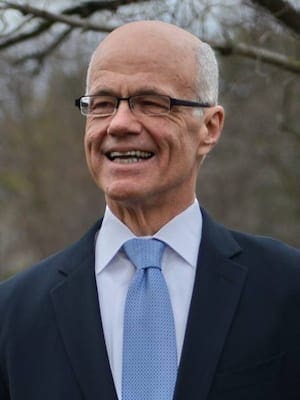Day by day, in the decisions we make and the actions we take, we are choosing whether to live in the desert of division or in the promised land of peace; in the wilderness of exclusion or the paradise of acceptance; in the far country of fear or the home of love.
We know all-too-well about division, exclusion and fear. They have their roots, I am convinced, in our estrangement from ourselves.
We reject ourselves, even our truest and best selves, fear our desires, grieve our history, regret our experience, cheapen our gifts, minimize our possibilities and dismiss our dreams.
Because we view ourselves with such harsh disdain, we are sure God must see us with impatience and displeasure. Then, tragically, we make the world around us like the world within us.
We magnify nationality and race, gender and sexuality, social class and economic status, success and failure.
We minimize our shared humanity; dishonor in others the yearning we all have to know and be known, to love and be loved; and forget the dignity of each person–a dignity based on his or her identity as a bearer of the image of God.
We classify, separate and stratify ourselves and others according to characteristics like blue collar or white collar, labor or management, Republican or Democrat, red state or blue state, black or white, brown or white, male or female, literate or illiterate, healthy or sick, old or young, sinner or saint.
It doesn’t have to be like this. We can choose a better way. We can choose, as God has chosen, the way of Jesus.
In Jesus, God welcomes the marginalized, the outcast and the excluded–the people no one else sees, no one else wants and no one else cherishes.
And God embraces the shadowy stranger who lives in us–the parts of us we’d rather not see and know and the things about us which are true but which we wish were not.
God leaves no one out, no one unaccepted and no one unloved, including you and me. Including our neighbors. Including our enemies.
In Jesus, God draws near to the anxious and worried, those who find trust difficult and who, for that reason, find loneliness inevitable.
God says: “I am with you. I will not leave you as orphans. Where I am is where you are.”
There is no fear beyond the power of God’s tenderness and no loneliness so vast that God cannot fill it with divine friendship.
In Jesus, God says to the guilty and the ashamed, those whom everyone else is ready to bury under hurled stones of judgment, “I do not condemn you; go and sin no more.”
There is no sin too great for grace to forgive and no hurt too painful for mercy to heal. God forgives you, me, him, her, them, everyone.
There isn’t much hope for me, or us, or the world without forgiveness. Without forgiveness, we are bound to our failures, trapped in our guilt and locked up in isolation.
Forgiveness isn’t easy to receive or to practice. When we forgive those who hurt us, we give up our quest for revenge and surrender our right to get even.
We work to see them as human beings, as people more like us than we are at first willing to think.
Maybe they aren’t people whom we will be able to trust again, but they are people nonetheless, people with their own disappointments and dreams, wounds and hopes. We pray for their healing and happiness.
In the final lines of his book, “I Know this Much is True,” novelist Wally Lamb said it well: “I am not a smart man, particularly, but one day, at long last, I stumbled from the dark wood of my own, and my family’s, and my country’s past, holding in my hands these truths: that love grows from the rich loam of forgiveness, that mongrels make good dogs, that the evidence of God exists in the roundness of things.”
 Guy Sayles is pastor of First Baptist Church of Asheville, North Carolina. A version of this column first appeared on his blog, From the Intersection, and is used with permission.
Guy Sayles is pastor of First Baptist Church of Asheville, North Carolina. A version of this column first appeared on his blog, From the Intersection, and is used with permission.

